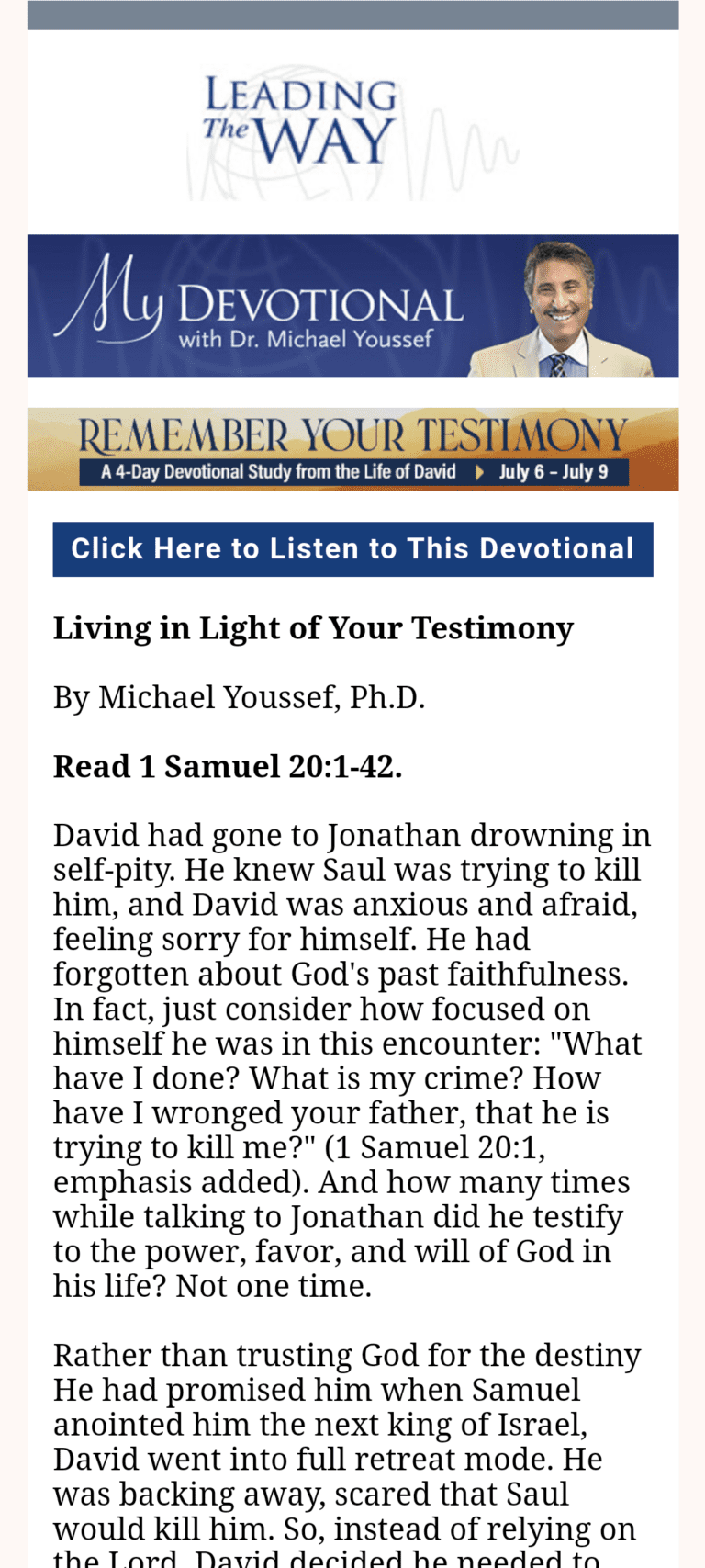

MY Devotional Straight to Your Inbox
Receive Biblical encouragement in your email inbox daily with MY Devotional, the FREE daily devotional from Dr. Michael Youssef.
Each email will also include the option to listen to the daily devotional through the MY Devotional podcast.
We're here to help
If you have prayer needs or specific questions about the Christian faith, you can reach our pastoral care team by clicking the button below




